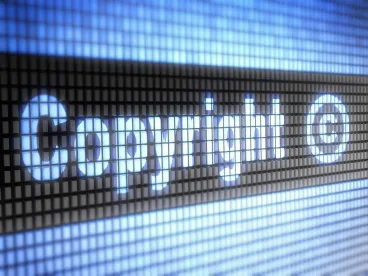Presented with a publishing company defendant’s mashup of Dr. Seuss’ copyrighted works with Star Trek in a work titled Oh, the Places You’ll Boldly Go!, the US Court of Appeals for the Ninth Circuit tackled claims of both copyright and trademark infringement, including the defense of fair use and the use of trademarks in expressive works. The Ninth Circuit reversed the district court’s summary judgment in favor of defendants on the copyright infringement claim and affirmed the district court’s dismissal and grant of summary judgment in favor of defendants on the trademark claim. Dr. Seuss Enterprises, L.P. v. ComicMix LLC, et al., Case No. 19-55348 (9th Cir. Dec. 18, 2020) (McKeown, J.)
Seuss Enterprises owns the intellectual property in the works of late author Theodor S. Geisel, better known as Dr. Seuss. Seuss Enterprises carefully yet prolifically licenses the Dr. Seuss works and brand across a variety of entertainment, media, art and consumer goods, including derivative works of Dr. Seuss’ final book, and graduation favorite, Oh, the Places You’ll Go! When Seuss Enterprises encountered a Kickstarter campaign to raise funds for the Oh, the Places You’ll Boldly Go! mashup work created by ComicMix (a company whose employees include an author of Star Trek episodes), it filed suit for copyright and trademark infringement. The district court granted ComicMix’s motion for summary judgment, holding that the Boldly work was a fair use of Dr. Seuss’s Oh, the Places You’ll Go! and that Seuss Enterprises did not have a cognizable trademark infringement claim under the Lanham Act. Seuss Enterprises appealed.
On appeal, ComicMix asserted its defense of fair use by arguing that its copying of the Dr. Seuss works (described at one point in the record as painstaking attempts to create “identical” illustrations) resulted in a parody of the works. The Ninth Circuit examined the facts under the four non-exclusive factors of fair use reflected in § 107 of the Copyright Act:
- The purpose and character of the use, including whether such use is of a commercial nature or is for nonprofit educational purposes
- The nature of the copyrighted work
- The amount and substantiality of the portion used in relation to the copyrighted work as a whole
- The effect of the use upon the potential market for, or value of, the copyrighted work.
Remarking that the outcome of the purpose and character of the use factor influences the assessment of the third and fourth factors, the Ninth Circuit concluded that the Boldly work was not transformative as a parody or otherwise, and that the “indisputably commercial” nature of the work weighed against fair use. The Court explained that a parody exists only if the resulting work critiques or comments on the underlying copyrighted work. The Ninth Circuit cited its decision in another Seuss case (Dr. Seuss Enters. v. Penguin Books), which involved the retelling of the O.J. Simpson murder trial through the lens of The Cat in the Hat. Here, the Court similarly found that Boldly only “evokes” Oh, the Places You’ll Go!, rather than ridiculing the original copyrighted work in any manner. Further, the otherwise unchanged nature of the Seussian world featuring Star Trek characters without the addition of any “new expression, meaning, or message” to the Dr. Seuss work did not result in a transformative use.
Under the second factor, the nature of Oh, the Places You’ll Go! as a creative, expressive work (versus an informational or functional work) was found to weigh against fair use. The court explained that creative works are “closer to the core of intended copyright protection,” and fair use is more difficult to establish when such creative works are at issue.
With respect to the third fair use factor, the Ninth Circuit found that the quantitative amount and qualitative value of the original work used was “substantial” and weighed “decisively” against fair use. Quantitatively, close to 60% of the Seuss book was “replicated, as much and as closely as possible” along with other copied Seuss illustrations. Qualitatively, ComicMix was found to have taken the “heart” of the Dr. Seuss works. Harkening back to the first factor, without any parody or transformative work at hand, the Court found little justification for the amount and substantiality of the Dr. Seuss works used.
The Court found that the fourth and final factor also weighed against fair use because of the value of, or potential market for, the Seuss works. Specifically, having established the non-transformative and commercial uses of the Dr. Seuss works under the first factor, the Court found such uses to have the potential to lead to market harm for the original works. The Court pointed to the “crucial right” of a copyright owner to access the derivative works market, in “which Seuss engaged extensively for decades,” and determined that ComicMix did not meet its burden of proof in bringing forward favorable evidence about the relevant markets. With all four factors weighing against ComicMix’s defense of fair use, the Ninth Circuit reversed the district court’s grant of summary judgment in favor of ComicMix and remanded.
The Ninth Circuit did, however, affirm part of the district court’s dismissal and grant of summary judgment in favor of defendants with respect to Seuss Enterprises’ claim of trademark infringement based on its rights in the Oh, the Places You’ll Go! trademark, as well as the “Seussian” brand typeface, illustration and style. Under the test established in Rogers v. Grimaldi, when a trademark is used in an expressive work (such as Boldly), there is no actionable claim under the Lanham Act unless the trademark has zero relevance to the underlying work or explicitly misleads consumers as to the source or content of the work. Here, the Court found the Seuss trademarks relevant to the artistic purpose of Boldly and did not find Boldly to be explicitly misleading as to its source. The Court thus held that the Lanham Act did not apply and affirmed the denial of Seuss Enterprises’ trademark claim.




 />i
/>i

